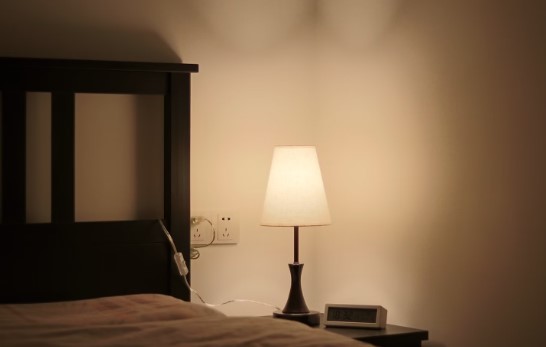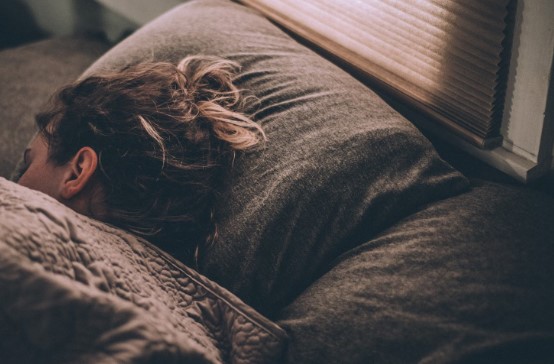One of the most unsettling challenges during menopause is the sudden onslaught of sleep disorders. While many know about hot flashes and mood swings, sleep disturbances often take a backseat in conversations. Yet, their impact on health and quality of life is just as significant.
A good night’s sleep is not merely a luxury but a necessity for our bodies to function optimally. As we delve into the intimate connection between sleep disorders and menopause, this article aims to equip you with effective strategies to improve sleep quality during this pivotal stage of life.
Table of Contents
Understanding Sleep Disorders in Menopause
Sleep disorders are disruptions in the patterns or quantities of sleep, often leading to daytime distress and reduced functionality. They go beyond the occasional restless night, turning into a recurring hurdle in your pursuit of restful slumber. Among these, insomnia, sleep apnea, and restless leg syndrome are often reported during menopause.
But what’s the connection between these sleep disorders and menopause? With progesterone decrease, women often experience lighter, less restful sleep and an increase in sleep disturbances. Simultaneously, lower estrogen levels can lead to hot flashes and night sweats, further disrupting sleep.
Impact of Sleep Disorders during Menopause
Sleep disorders, the uninvited guests of menopause, carry more than just a pair of baggy eyes. The repercussions extend far beyond daytime drowsiness, influencing women’s physical, mental, and emotional well-being in profound ways.
Sleep deprivation exacerbates many menopausal symptoms, playing a cruel game of dominoes with your body and mind.
Mood swings
You may find your emotions oscillating wildly, leaving you puzzled about this newfound emotional volatility. Tossing and turning at night might be the invisible puppeteer behind these erratic mood changes.
Memory issues or brain fog
You might walk into a room and forget why, or names may slip off the edge of your memory.
Fatigue and hot flashes
Without restful sleep, your energy reserves deplete, leaving you feeling perpetually exhausted. Disrupted sleep can also trigger or amplify hot flashes, adding to your nighttime woes.
Long-term sleep disorders shouldn’t be brushed under the carpet as mere inconveniences. They harbour potential health risks, such as:
- Cardiovascular diseases
- Obesity
- Diabetes
- Weaker immune system.
Evaluating Sleep Quality in Menopause
Gauging sleep quality is not as ambiguous as it might sound. It’s an amalgamation of various factors that, together, determine whether you’re getting not just the required hours but also the appropriate slumber your body craves.

How do we measure sleep quality?
Sleep duration or latency
It measures how long it takes before you slumber. Ideally, sleep should be less than half an hour.
Sleep efficiency
The amount of time spent asleep versus the total time spent in bed. The higher the efficiency, the better the sleep quality.
Sleep waking
Measures how many times you wake up during your sleep. Waking up once, at most, means you have good sleep quality.
Sleep affects
Waking up feeling refreshed and staying alert throughout the day are also tell-tale signs of good sleep.
Red flags that your sleep quality during menopause may be suffering include:
- Frequent awakenings during the night
- Reliance on sleep aids or alcohol for sleep initiation
- Daytime drowsiness
- Irritability
- Difficulty concentrating
- Overall feeling of non-restorative sleep
Strategies for Improving Sleep Quality during Menopause
Improving sleep quality during menopause doesn’t necessarily require a complete lifestyle overhaul. Rather, it’s about making thoughtful adjustments to your daily routine and seeking professional help when needed.
Have a regular sleep schedule
Going to bed and waking up at the same time every day helps regulate your body’s internal clock, making it easier to fall asleep and wake up. Alongside a regular sleep schedule, incorporating menopause supplements for sleep can further support restful nights.
Do consistent exercise
Prefer doing it in the morning or afternoon for better sleep. Avoid vigorous workouts close to bedtime as they may interfere with sleep onset.
Adjust your dietary habits
Aim for a balanced diet rich in fruits, vegetables, lean proteins, and whole grains. Foods rich in vitamin B6, magnesium, and calcium may promote better sleep. Meanwhile, limit your intake of caffeine and alcohol, especially in the evening.
Practice relaxation techniques
Mindfulness, meditation, and deep-breathing exercises help calm your mind, reducing stress and anxiety, thereby enabling better sleep.
Try treatments and medications
Cognitive Behavioral Therapy (CBT) is recommended for persistent insomnia. It involves identifying and changing beliefs and behaviours that affect your ability to sleep. Over-the-counter sleep aids and prescription medications can provide temporary relief. Still, they should be used under the guidance of a healthcare professional due to potential side effects and the risk of dependence.
Create a sleep-friendly environment
Keep your bedroom quiet, dark, and cool. Use earplugs, an eye mask, or a white noise machine if needed, and invest in a comfortable mattress and pillows. Try to make your bedroom a technology-free zone. The light emitted by phones, tablets, computers, and TVs can interfere with your body’s production of melatonin, a hormone crucial for sleep.
New Developments in Managing Sleep Disorders during Menopause
The field of sleep medicine is dynamic, with continuous research and innovation for newer, better strategies to manage sleep disorders during menopause.
Hormone Replacement Therapy
While HRT has traditionally been used to manage common menopausal symptoms such as hot flashes, its potential benefit for sleep disorders is gaining recognition. HRT, specifically progesterone and its synthetic counterparts, have been shown to enhance sleep quality by dealing with vasomotor symptoms.
Sleep Tracking Devices and Apps
These technological advances monitor sleep patterns and offer insights into sleep duration, efficiency, and disturbances. They act as a personal sleep diary, helping you and your healthcare provider identify patterns and triggers that may be impacting your sleep.
Cognitive-Behavioural Therapy Apps
These apps are powerful tools for managing insomnia. They guide users through various techniques to improve sleep, like relaxation exercises and strategies to change harmful sleep-related beliefs and behaviours.
Light Therapy Devices and Telemedicine
These devices are designed to adjust the body’s internal clock and improve sleep-wake cycles. Telemedicine also presents an accessible way to consult with sleep specialists and therapists from the comfort of your home.
Closing Thoughts: Prioritize Your Sleep during Menopause
As we conclude our exploration of sleep disorders and menopause, the importance of managing sleep disruptions during this transitional stage of life cannot be overstated. Sleep, often undervalued, plays a crucial role in maintaining overall health and well-being.
As highlighted, strategies to improve sleep quality range from lifestyle modifications and relaxation techniques to innovative technological tools and treatments. Experiment with these strategies, discover what works best for you, and remember that improvements in sleep quality may take time.
Listen to your body, prioritize rest, and seek help when needed. By implementing these strategies, you can turn the tides on sleep disorders during menopause, reclaiming the restful slumber you deserve. Sleep well and take care because a good night’s sleep is a significant step towards healthier, happier days ahead.

